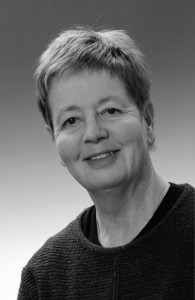————————————————
1000PeaceWomen update: Barbro Sundback, 21 January 2016
Barbro Sundback continues in her role of Chair of the Board of the Åland Islands Peace Institute, the hugely successful organisation that she helped found in 1992. She is proud of the way the Peace Institute has developed and feels the time will be right for her to step down in 2017.
The Åland Islands Peace Institute now focuses its work on issues relating to minorities, security and autonomy. It is running a major project on de-militarisation, which is backed by a private funder, and also continues to host the high-level Kastelholm talks at Kastelholm castle, under the patronage of the former President of Finland, Tarja Halonen.
Under Barbro’s leadership, the Åland Islands Peace Institute has become a popular and effective research destination for those working on conflict resolution. In addition to this international focus, Barbro has achieved much locally. She has succeeded in maintaining the Åland Islands’ demilitarised status and its autonomy is now firmly anchored in law, having been ratified by Parliament in 2014.
So what about the next ten years? Barbro will continue to engage with original and stimulating thinkers. She aims to continue to work closely with civil society in the Baltic countries, societies that are geographically close but otherwise so very different to those of the Nordic countries. Barbro is also a musician and has written a modern opera, which will be performed for the first time in 2016. She is, in addition, closely involved with the folk music scene of the Åland Islands.
Barbro, a psychologist by profession, has spent much time considering the interaction of women and power. What exactly is power and how do women use it? What is the difference between influence and power (women often want the former but not the latter)? Men, she says, tend to use power to advance their own interests and careers while women use theirs to support the next generations. Good ideas are all very well, she notes. But you need the power to implement them. “Look at the recent climate conference in Paris as an example. The fact that so many women participated at the highest level was crucial to its success. If the world is to be sustainable in the future, we need feministic policies.
————————————————
“I never wanted to give up and become cynical. It is better to work together with other people and believe in the future. Much healthier.”
Barbro Sundback has believed in politics and peace for all of her working life, and she has seen politics and democracy as the only possible way to achieve justice and peace. A founding member of several peace groups on the Åland Islands she has also represented Åland internationally, and is not only a well-respected and popular member of Parliament, but also its speaker. She is chairperson of the Board of the Åland Islands Peace Institute, founded in 1992 by the Åland Islands Peace Association. She is also a member of the Peace Association-Emmaus.
Barbro Sundback (born 1945) has been a member of Parliament since 1979. She has also been deeply involved in peace education and peace building activities. She is chairperson of the Board of the Åland Islands Peace Institute, founded in 1992 by the Åland Islands Peace Association. The institute does both practical and theoretical work on security policy, minority groups, and issues relating to the Baltic Sea region. Barbro is also a member of the Peace Association-Emmaus which carries out actions to help prevent and resolve conflicts, including demonstrations and campaigns. Barbro says: “Getting involved in peace work was a long process for me. Politics came first. Then, I found the threat of a nuclear holocaust so frightening and so hopeless. I got involved in the peace marches through Europe in the 1980s and met so many different people who wanted to act for peace instead of shrugging their shoulders and doing nothing. I did not want to become cynical. It is healthier to have hope. With time I have come to think that the most important thing is the process of working together. The main obstacle to peace is the conception that war is somehow inevitable. That concept is built into the patriarchal structures of our society, and the people who uphold it are probably the ones who are themselves ready to use violence to achieve their goals. If you believe violence is a solution, it becomes one.
Ålands fredsinstitut (Åland Islands Peace Institute) Emmaus Åland (Peace Association-Emmaus) Finnish Music Information Center (Fimic)
Europe | Finland

